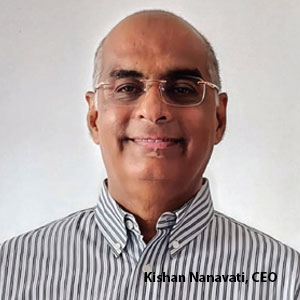 Many villages across India struggle with water scarcity and consuming conta- minated water sources. According to estimates, about 45 percent of the population lacks access to safe drinking water, and the government is making significant efforts to provide safe drinking water through initiatives like the “Jal Jeevan Mission” schemes.
Many villages across India struggle with water scarcity and consuming conta- minated water sources. According to estimates, about 45 percent of the population lacks access to safe drinking water, and the government is making significant efforts to provide safe drinking water through initiatives like the “Jal Jeevan Mission” schemes. However, challenges persist in implementation and sustainability. Maintaining filtration systems and distribution networks requires financial and logistical support due to the lack of local income opportunities, which makes it difficult for families to afford purified water regularly. Moreover, the water purification and distribution approach must align with environmental sustainability to reduce pollution and carbon emissions.
Spring Health aims to make safe drinking water available to the masses while facilitating rural-level entrepreneurship development and ensuring last-mile distribution by collaborating with local entrepreneurs to make safe drinking water accessible. The company follows an affordable pricing model while utilizing sustainable purification techniques to keep costs low and affordable for the masses. A circular economy is established within the villages, where the water sales revenue is reinvested into the community for long-term sustainability.
Sustainable Water Distribution Using a Revenue Model
The revenue generation model drives the business, and the company will cover the costs associated with purifying the water. They are setting up kiosks in villages with 500 to 600 households. To reach break-even, the company focuses on penetrating about 18 to 22 percent of the market, which is around 60 to 80 households. This outreach is made possible through social networking. Another significant achievement of the company was eliminating carbon emissions, which caused people to boil water with kerosene or firewood, and the water was distributed among the people.
This initiative reduced CO2 emissions. As a result, it could generate carbon credits and sell them in the open market. This revenue significantly allowed the company to sustain and cover its operational expenses. The organization is effectively handling last-mile distribution, ensuring that every customer they partnered with has access to safe drinking water, and their innovative approach using e-rickshaws for the delivery, has reduced pollution and the carbon footprint.
Most of the staff was locally hired, significantly reducing transportation costs. They utilized company vehicles for commuting, eliminating overheads related to travel expenses, and personal two-wheeler maintenance. This approach lowered employee costs and streamlined the company's financial structure. The primary expenses included the initial capital expenditure required to set up the kiosks, followed by operational costs, which encompassed the salaries of the delivery boy, the salary of the executive, and the commission for the entrepreneur. When analyzing the unit economics, it became clear that these costs were manageable. The team estimated that each kiosk would take approximately 24 months to break even. After this period, the kiosks would generate revenue and contribute to profitability.
Kishan Nanavati, CEO, Spring Health, stated that the company's mission is "to provide affordable, safe drinking water to people at the grassroots level".
Overcoming Challenges & Expanding Business Operations
Initially, the business model faced significant challenges in raising capital. The team struggled, as many investors hesitated to support a project-focused on rural India, particularly one centered on water access. Potential backers' prevailing belief was that people in rural areas wouldn't pay for water, which shaped their reluctance to invest.
The organization is expanding its footprint across various states, including Jharkhand, Uttar Pradesh, and specific areas of Chhattisgarh, and even looking into international markets. Additionally, they are exploring opportunities to co-brand with different social ventures and enterprises, collaborating with solar-powered companies.

Our mission is to provide affordable and safe drinking water to people at the grassroots level
Most of the staff was locally hired, significantly reducing transportation costs. They utilized company vehicles for commuting, eliminating overheads related to travel expenses, and personal two-wheeler maintenance. This approach lowered employee costs and streamlined the company's financial structure. The primary expenses included the initial capital expenditure required to set up the kiosks, followed by operational costs, which encompassed the salaries of the delivery boy, the salary of the executive, and the commission for the entrepreneur. When analyzing the unit economics, it became clear that these costs were manageable. The team estimated that each kiosk would take approximately 24 months to break even. After this period, the kiosks would generate revenue and contribute to profitability.
Kishan Nanavati, CEO, Spring Health, stated that the company's mission is "to provide affordable, safe drinking water to people at the grassroots level".
Overcoming Challenges & Expanding Business Operations
Initially, the business model faced significant challenges in raising capital. The team struggled, as many investors hesitated to support a project-focused on rural India, particularly one centered on water access. Potential backers' prevailing belief was that people in rural areas wouldn't pay for water, which shaped their reluctance to invest.
The organization is expanding its footprint across various states, including Jharkhand, Uttar Pradesh, and specific areas of Chhattisgarh, and even looking into international markets. Additionally, they are exploring opportunities to co-brand with different social ventures and enterprises, collaborating with solar-powered companies.







